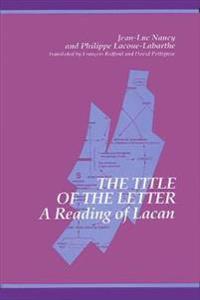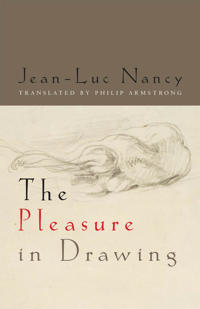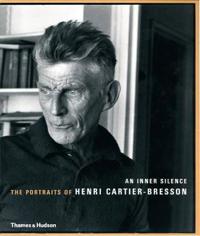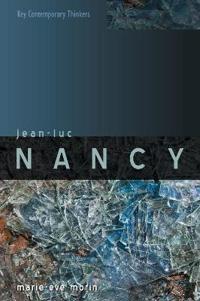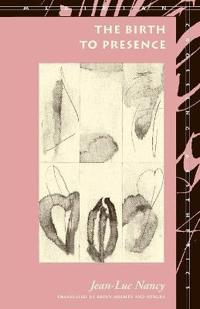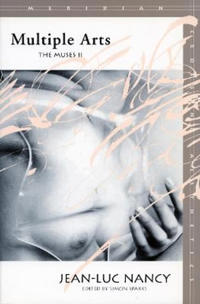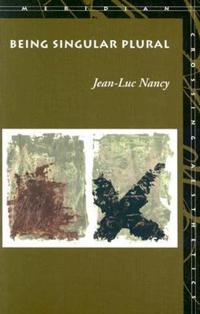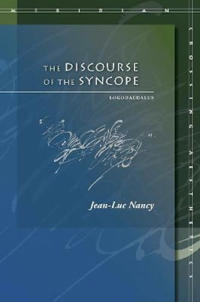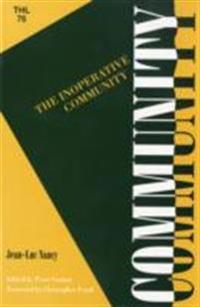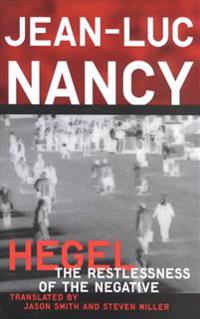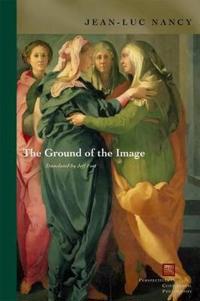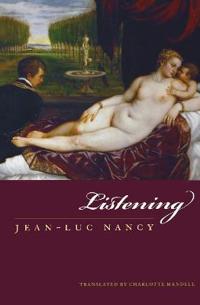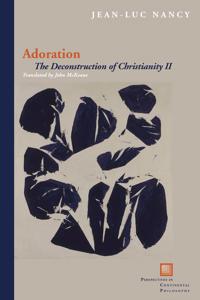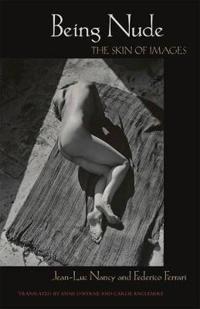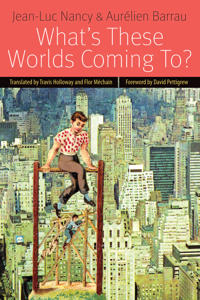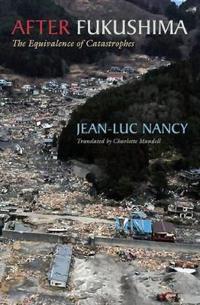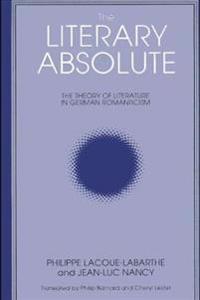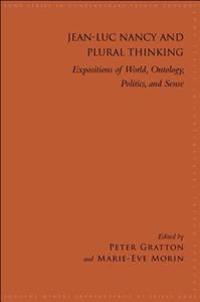The Title of the Letter (Pocket)
avJean-Luc Nancy, Philippe Lacoue-Labarthe, Jean-Luc Nancy
ISBN: 9780791409626 - UTGIVEN: 1992-06The Pleasure in Drawing (Inbunden)
avJean-Luc Nancy, Philip (TRN) Armstrong, Jean-Luc Nancy
ISBN: 9780823250936 - UTGIVEN: 2013-07Originally written for an exhibition Jean-Luc Nancy curated at the Museum of Fine Arts in Lyon in 2007, this book addresses the medium of drawing in light of the question of form--of form in its formation, as a formative force, as a birth to form. In this sense, drawing opens less toward its achieve[...]
Identity (Pocket)
avJean-Luc Nancy, François (TRN) Raffoul, Jean-Luc Nancy
ISBN: 9780823256112 - UTGIVEN: 2014-11Identity. Fragments, Frankness is a dense and powerful essay on the notion of identity and national identity, and on how they play in our contemporary world. In contrast with the various attempts to cling to established identities, or to enclose identity within dubious agendas, Nancy shows that an i[...]
An Inner Silence: The Portraits of Henri Cartier-Bresson (Häftad)
avAgnes Sire, Jean-Luc Nancy
ISBN: 9780500288757 - UTGIVEN: 201004Henri Cartier-Bresson photographed some of the icons of the 20th century, those few people among millions whose images will pass into history. "An Inner Silence: The Portraits of Henri Cartier-Bresson" is a dazzling selection of Cartier-Bresson's most memorable portraits, including such diverse pers[...]
Jean-Luc Nancy (Häftad)
avMarie-Eve Morin
ISBN: 9780745652412 - UTGIVEN: 201207Jean-Luc Nancy is one of the leading contemporary thinkers in France today. Through an inventive reappropriation of the major figures in the continental tradition, Nancy has developed an original ontology that impacts the way we think about religion, politics, community, embodiment, and art. Dr[...]
Multiple Arts (Häftad)
avJean-Luc Nancy
ISBN: 9780804739542 - UTGIVEN: 2006-05This collection of writings by Jean-Luc Nancy, the renowned French critic and poet, delves into the history of philosophy to locate a fundamentally poetic modus operandi there. The book represents a daring mixture of Nancy's philosophical essays, writings about artworks, and artwork of his own. With[...]
Being Singular Plural (Häftad)
avJean-Luc Nancy
ISBN: 9780804739757 - UTGIVEN: 200102The fundamental argument of this book is that being is always 'being with', that 'I' is not prior to 'we', that existence is essentially co-existence.[...]
The Discourse of the Syncope (Pocket)
avJean-Luc Nancy
ISBN: 9780804753548 - UTGIVEN: 2007-12Why is it that the modern conception of literature begins with one of the worst writers of the philosophical tradition? Such is the paradoxical question that lies at the heart of Jean-Luc Nancy's highly original and now-classic study of the role of language in the critical philosophy of Kant. While [...]
The Ground of the Image (Häftad)
avJean-Luc Nancy
ISBN: 9780823225415 - UTGIVEN: 200511If anything marks the image, it is a deep ambivalence. Denounced as superficial, illusory, and groundless, images are at the same time attributed with exorbitant power and assigned a privileged relation to truth. Mistrusted by philosophy, forbidden and embraced by religions, manipulated as spectacle[...]
Listening (Häftad)
avJean-Luc Nancy
ISBN: 9780823227730 - UTGIVEN: 200705In this lyrical meditation on listening, Jean-Luc Nancy examines sound in relation to the human body. How is listening different from hearing? What does listening entail? How does what is heard differ from what is seen? Can philosophy even address listening, couter, as opposed to entendre, which mea[...]
Dis-Enclosure (Pocket)
avJean-Luc Nancy, Bettina Bergo, Gabriel Malenfant
ISBN: 9780823228362 - UTGIVEN: 200804This book is a profound and eagerly anticipated investigation into what is left of a monotheistic religious spirit - notably, a minimalist faith that is neither confessional nor credulous. Articulating this faith as works and as an objectless hope, Nancy deconstructs Christianity in search of the hi[...]
Corpus (Häftad)
avJean-Luc Nancy
ISBN: 9780823229628 - UTGIVEN: 200810How have we thought the body? How can we think it anew? The body of mortal creatures, the body politic, the body of letters and of laws, the mystical body of Christ-all these (and others) are incorporated in the word Corpus, the title and topic of Jean-Luc Nancy's masterwork.Corpus is a work of lite[...]
The Fall of Sleep (Häftad)
avJean-Luc Nancy
ISBN: 9780823231188 - UTGIVEN: 200909Philosophers have largely ignored sleep, treating it as a useless negativity, mere repose for the body or at best a source for the production of unconscious signs out of the night of the soul.In an extraordinary theoretical investigation written with lyric intensity, The Fall of Sleep puts an end to[...]
Adoration (Häftad)
avJean-Luc Nancy
ISBN: 9780823242955 - UTGIVEN: 201212Adoration is the second volume of the Deconstruction of Christianity, following Dis-Enclosure. The first volume attempted to demonstrate why it is necessary to open reason up not to a religious dimension but to one transcending reason as we have been accustomed to understanding it; the term "adorati[...]
The Pleasure in Drawing (Häftad)
avJean-Luc Nancy
ISBN: 9780823250943 - UTGIVEN: 2013-11Originally written for an exhibition Jean-Luc Nancy curated at the Museum of Fine Arts in Lyon in 2007, this book addresses the medium of drawing in light of the question of form--of form in its formation, as a formative force, as a birth to form. In this sense, drawing opens less toward its achieve[...]
Being Nude (Inbunden)
avJean-Luc Nancy
ISBN: 9780823256204 - UTGIVEN: 2014-08The nude has long been known as a symbol for truth in philosophy and art alike, but what does it mean to be naked? In a series of constantly surprising and thoughtful reflections, Jean-Luc Nancy and Federico Ferrari encounter the nude as an opportunity for thinking in a way that is stripped bare of [...]
Being Nude (Pocket)
avJean-Luc Nancy, Federico Ferrari, Anne (TRN) O'byrne
ISBN: 9780823256211 - UTGIVEN: 2014-08The nude has long been known as a symbol for truth in philosophy and art alike, but what does it mean to be naked? In a series of constantly surprising and thoughtful reflections, Jean-Luc Nancy and Federico Ferrari encounter the nude as an opportunity for thinking in a way that is stripped bare of [...]
What's These Worlds Coming To? (Häftad)
avJean-Luc Nancy
ISBN: 9780823263349 - UTGIVEN: 2014-11Our contemporary challenge, according to Jean-Luc Nancy and Aurelien Barrau, is that a new world has quietly cropped up on us and is, in fact, already here. We no longer live in a world, but in worlds. We do not live in a universe anymore, but rather in a multiverse. We no longer create; we appropri[...]
After Fukushima (Häftad)
avJean-Luc Nancy
ISBN: 9780823263394 - UTGIVEN: 2014-10In this book, the philosopher Jean-Luc Nancy examines the nature of catastrophes in the era of globalization and technology. Can a catastrophe be an isolated occurrence? Is there such a thing as a "natural" catastrophe since all our technologies (nuclear energy, power supply, water supply, and more)[...]
The Literary Absolute (Häftad)
avPhilippe Lacoue-Labarthe, Jean-Luc Nancy
ISBN: 9780887066610 - UTGIVEN: 198802

